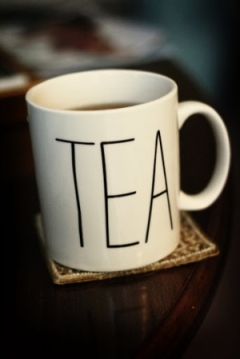 I suspect if you asked the average tea drinker what tea is, they would not have the first clue. At best, they may point to their tea cup and say “this.” So, before you dive further into the world of tea, whether you are seeking its health benefits, or just way to try some new tastes, it can be helpful to actually learn what tea really is.
I suspect if you asked the average tea drinker what tea is, they would not have the first clue. At best, they may point to their tea cup and say “this.” So, before you dive further into the world of tea, whether you are seeking its health benefits, or just way to try some new tastes, it can be helpful to actually learn what tea really is.
Officially, to be considered a tea, a “tea” must come from the plant camellia sinensis. This is the plant from which all “real teas” originate from. The following types of teas originate from this plant, and are thus considered “real teas.”
As you can see, nowhere is herbal tea found in the list. Nor is rooibos tea. The reason for this is because herbal teas usually contain anything (and I do meananything) but actual tea leaves! And rooibos tea leaves come from a completely different plant (aspalathus linearis) found generally in South Africa.
Because of this, herbal teas aren’t actually considered “teas”, even though they are labeled as such. Ditto for rooibos teas. With this in mind, it is important to realize that if you are drinking tea for its health benefits – mainly for its antioxidants – you will not be getting any when drinking a herbal tea or a rooibos tea (unless they have been added in). Instead, the antioxidants come from the tea plant camellia sinensis, which is used to create the other types of teas (black, green, white and oolong).
Yet, don’t despair. Herbal teas, while they may lack antioxidants, have massive health benefits all their own. So many benefits, in fact, several books have been written about them. Likewise, research is beginning to show that rooibos teas have unique health benefits all their own as well, too.
Overall, most people in the United States tend to consider any leaves that get added to water as “tea.” While technically speaking this is not correct, because all herbal brews are indeed labeled as “teas”, and because I myself live in the United States, for purposes of this site, tea is considered “anything that has leaves added to water.”
Just always remember that herbal teas and rooibos teas are NOT considered real teas as they do not come from an actual tea plant!


